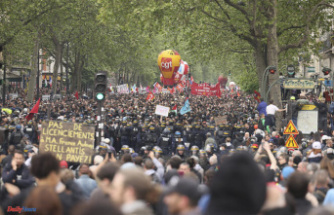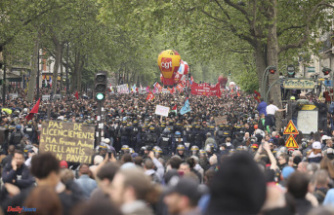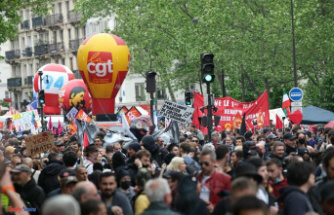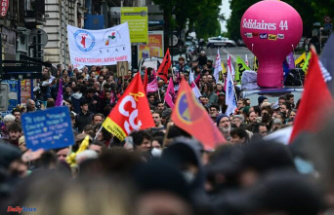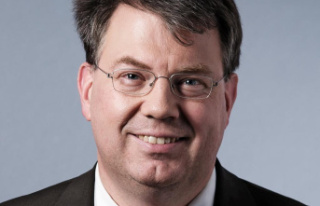The US Federal Reserve is fighting with all its might against runaway inflation. For the second time in a row, the Fed hiked interest rates by 0.75 percentage points on Wednesday. Fed Chair Jerome Powell has hinted at more hikes of this magnitude.
At the same time, fears of an economic downturn are growing in the world's largest economy. "I don't think the US is in a recession right now," Powell said. But a somewhat slower growth is necessary.
The Fed is thus taking far more aggressive action against inflation than the European Central Bank (ECB), which raised interest rates in July for the first time in eleven years. The increase in the currency area of the 19 members was surprisingly high at half a percentage point. However, critics accuse the ECB of having initiated the turnaround in interest rates too late. Inflation in the euro zone has been rising to record levels for months.
Do the positive or the negative effects predominate?
At the same time, the economic prospects in Europe have clouded over significantly as a result of the Russian attack on Ukraine. If the ECB raises interest rates too quickly in this environment, this could become a burden, especially for heavily indebted countries in southern Europe. Europe's currency watchdogs, like the US Federal Reserve, are therefore faced with a balancing act.
The estimate of the gross domestic product in the USA for the second quarter is now eagerly awaited on Thursday. The economy had surprisingly shrunk in the winter. There are many indications that economic output is now declining again. If the economy shrinks two quarters in a row compared to the previous quarter, economists speak of a "technical recession". Powell warned to take the new numbers on economic growth with caution. In his view, a recession is not inevitable.
The White House is also trying not to overestimate the upcoming estimate. There are many factors to consider, stressed US President Joe Biden's spokeswoman, Karine Jean-Pierre. She referred to the strong job market. The unemployment rate in the USA is at a similarly low level as before the outbreak of the pandemic in February 2020. Biden likes to boast about these figures - at the same time his approval ratings are suffering from rising consumer prices.
"It's not the president who caused the inflation. There are also external factors that have led us to where we are today," emphasized Jean-Pierre, for example with a view to energy prices and problems with supply chains due to the corona lockdowns in China. At 9.1 percent, the rate of inflation in the USA is the highest it has been in around four decades. That's a far cry from the 2 percent target the Fed has set for itself. Therefore, the central bankers are relying on a tight monetary policy - and could thus choke off the upswing.
Powell thinks balancing act is possible
The current rate hike is the fourth hike this year. The Fed raised interest rates by 0.75 points in June. It was the largest rate hike since 1994. Increases in the key interest rate make loans more expensive and curb demand. This helps bring down the rate of inflation, but it also weakens economic growth.
"If we don't deal with it now, it will only increase the cost of dealing with it later," Powell warned, referring to inflation. "We don't want a recession, and we don't think we need to have one. We believe there is a way to bring inflation down while maintaining a strong job market."
It probably won't work without pain. Smaller companies in particular are likely to suffer from higher interest rates. They have lower cash flow and are more reliant on credit. On the other hand, relief prevailed on the stock exchanges. Some of Powell's statements encouraged investors despite the high interest rate step - for example that the Fed boss emphasized that he should reconsider the development from meeting to meeting. Some financial market players apparently took this as a slight weakening of the previously restrictive choice of words. The next decision is due in September.


